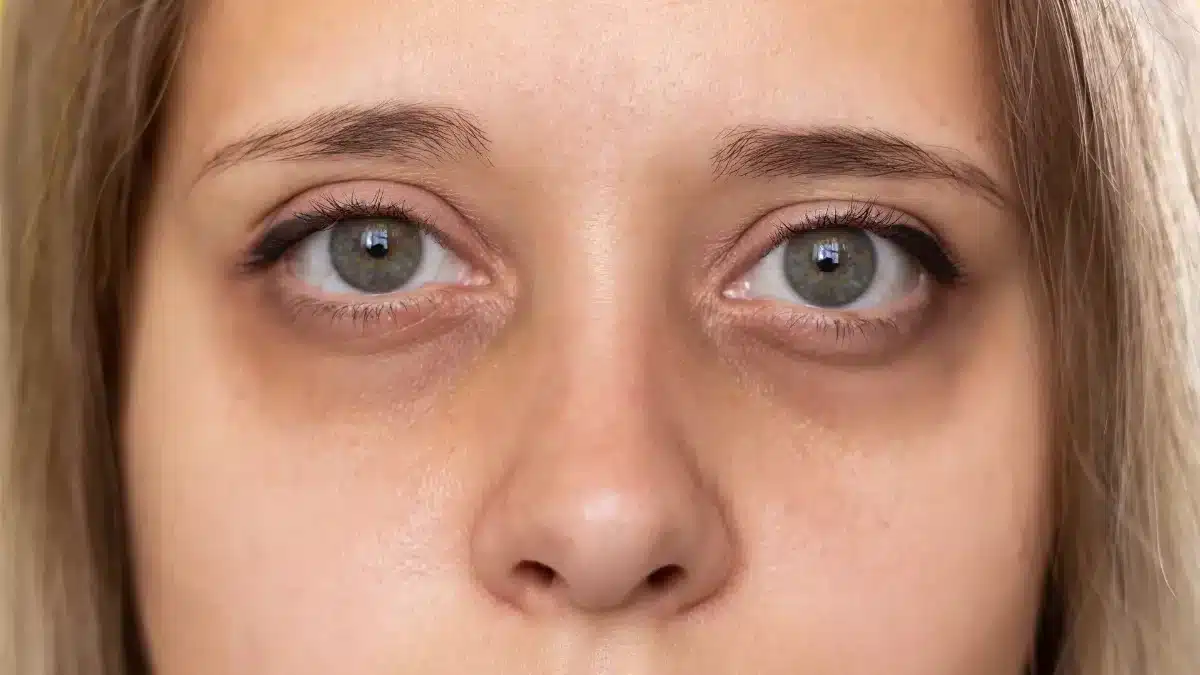Can Dehydration Cause Dry Eyes?
Dehydration is a common health issue affecting our well-being, but did you know it can also impact your eyes?
When the body lacks the necessary moisture and fluids, it can make you more susceptible to a condition known as dry eyes.
It’s a condition where your eyes have poor-quality tears or don’t have enough tears, which can lead to irritation, redness, and sometimes even vision problems.
In this article, we’ll explore can dehydration cause Dry eyes and ways to prevent and treat this condition.
Dehydration and dry eyes
When your tear ducts fail to produce enough tears or when some of the components in your tears are insufficient, you get dry eyes.
As a result, your eyes don’t receive the necessary moisture to stay hydrated.
When dehydrated, the body prioritizes water for critical processes like maintaining brain circulation, which can leave your eyes without the required moisture.
Symptoms of dry eyes and dehydration

The symptoms of dry eyes can vary in intensity, but they often include:
- Blurred vision
- Eye floaters
- Headaches
- Strained vision
- Sensitivity to light
- Difficulty wearing contact lenses
- Scratchy sensation in the eyes
- Burning, stinging, or irritation
Dehydration’s impact on tear film
When you become dehydrated, the watery layer of your tear film can become too thin, affecting its ability to provide proper lubrication for your eyes.
Moreover, dehydration can lead to decreased tear production, compounding the issue further.
These changes disrupt the delicate balance of the tear film, resulting in Dry eyes.
Also Read: To know more causes of dry eyes, read our informative article, “Dry Eyes Causes: Understanding the Underlying Factors.”
Dehydration and eye floaters
Eye floaters, which appear as spots in your field of vision, are often associated with age-related changes in the eye.
However, dehydration can also contribute to the formation of eye floaters.
They occur when the gel-like substance in your eye, vitreous humor, loses shape.
Dehydration can trigger this process as the proteins in the vitreous humor solidify instead of remaining dissolved.
Diagnosing Dry eyes
If you suspect that your Dry eye symptoms are related to dehydration, consult a healthcare provider to rule out other potential causes.
Your healthcare provider may conduct various tests and examinations to diagnose Dry eyes, including:
- Eye exam: Reviewing your medical history and examining your eyes
- Schirmer test: Placing a blotting strip under your lower eyelid to measure tear production and volume
- Tear quality tests: Using special eyedrops with dye to assess your eye’s condition and the rate at which tears evaporate
- Tear Osmolarity tests: Measuring the composition of tears, including the number of particles and water content
- Tear samples: Analyzing tear samples to identify the causes of dry eye disease
Prevention and management

The most effective strategy for preventing Dry eyes caused by dehydration is to ensure you stay adequately hydrated.
Experts recommend consuming between 8 to 10 glasses of water daily.
Additionally, your diet plays a role in eye health. Omega-3 fatty acids, antioxidants, and vitamins A, C, D, and E may contribute to maintaining healthy eyes.
Over-the-counter treatments like topical eye drops and gels are available to manage dry eye symptoms.
However, if your symptoms persist or worsen or you experience vision problems, seeking professional medical treatment for dry eye is crucial.
In some cases, prescription-strength medications for dry eyes may be necessary to alleviate the symptoms.
Conclusion
Dehydration can cause dry eyes, leading to discomfort and vision disturbances, and even affect your ability to wear contact lenses comfortably.
The symptoms of dry eyes often include blurred vision, eye floaters, headaches, and irritation.
Dehydration disrupts the delicate balance of the tear film, essential for keeping your eyes moist and comfortable.
Preventing dry eyes related to dehydration is primarily about staying adequately hydrated.
Drinking enough fluids and a balanced diet rich in essential nutrients for eye health can go a long way in maintaining the moisture your eyes need.
Over-the-counter treatments like eye drops and gels can relieve dry eye symptoms. Still, it’s important to consult a healthcare provider if your symptoms persist or worsen.
Keeping your eyes adequately moisturized can help you enjoy clear and comfortable vision, free from the discomfort of dry eyes.
Frequently Asked Questions
Can drinking more water cure Dry eyes?
Drinking more water can help alleviate dry eyes to some extent, but it may not be a cure-all solution. Environmental conditions, aging, medications, or underlying medical conditions often cause dry eyes. While staying hydrated is important, addressing dry eyes may require additional measures.
Can dehydration cause Dry your eyes?
Yes, being dehydrated can contribute to Dry eyes. When the body is dehydrated, it may produce fewer tears, leading to insufficient lubrication of the eyes, which can result in dryness and discomfort. Staying adequately hydrated is important for maintaining healthy tear production and eye comfort.
Will Dry eyes lead to blindness?
Dry eyes typically do not lead to blindness on their own. However, if left untreated or severe and chronic, they can cause discomfort and blurry vision, potentially leading to corneal damage affecting the vision. It’s crucial to address Dry eye symptoms through appropriate treatments and regular eye care to prevent complications that might affect your vision in the long term.
WowRx uses only high-quality sources while writing our articles. Please read our content information policy to know more about how we keep our content reliable and trustworthy.






